After Beirut blast, protesters plead with French president for change
President Macron of France touched down Thursday morning.
LONDON and PARIS -- President Emmanuel Macron of France was mobbed by protesters calling for change after arriving in Beirut Thursday, as loved ones of the missing gathered around the site of Tuesday's massive explosion.
The Lebanese Health Minister said at least 137 were killed in the explosion, with 5,000 people injured and at least 100 still missing. One American has been confirmed as being among the dead and several others injured, a U.S State Department spokesperson told ABC News.
Macron landed in Beirut Thursday morning, promising "unconditional aid and support for the population," as international assistance arrived in the stricken city. Another French plane will soon arrive with investigative resources and search teams, he said, as officials piece together exactly what happened.
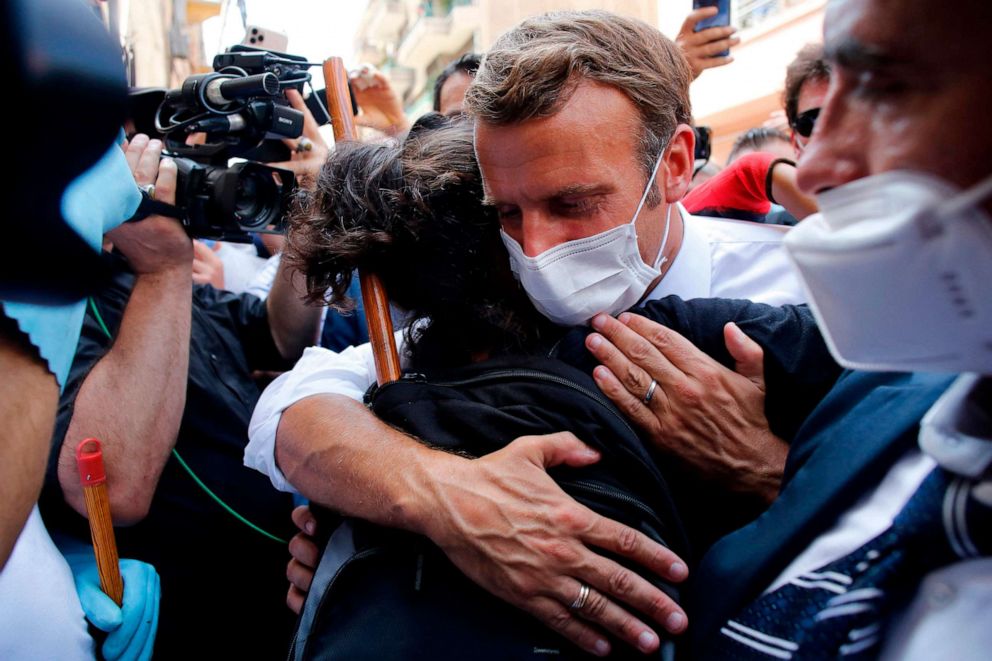
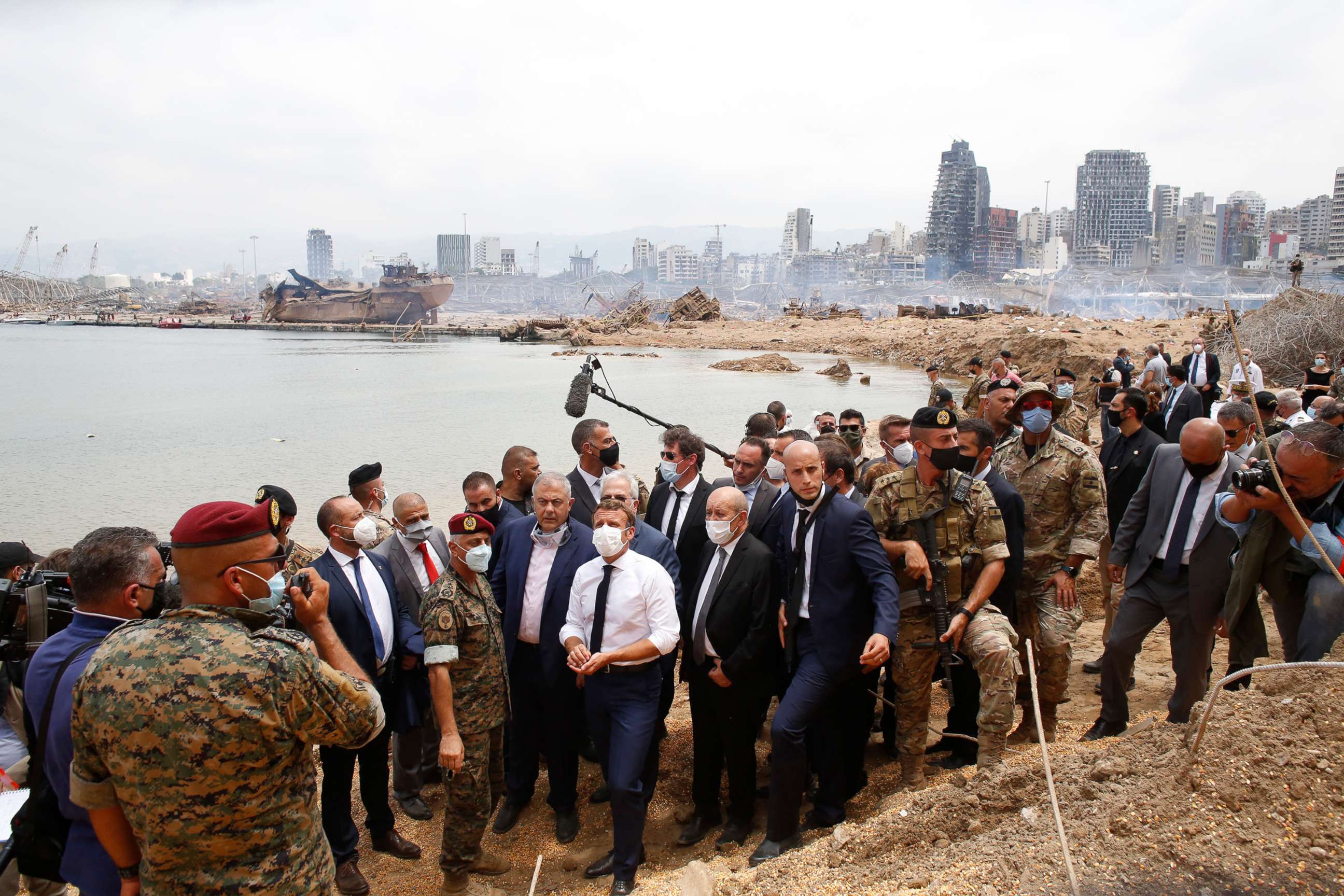
"We will organize things so that aid can go on the ground, can reach the Lebanese women and men," he told reporters soon after landing. "This is what we need. We will be there. And we won't let go."
He also spoke of the need for significant reforms to Lebanese society, saying "if these reforms are not made, Lebanon will continue to sink."
Macron was later surrounded in the street by protesters calling for regime change. In a passionate exchange, one protester said "you are our only hope," while another, expressing the frustration many Lebanese have with corruption in the country, can be heard saying "don't give the money to the government."
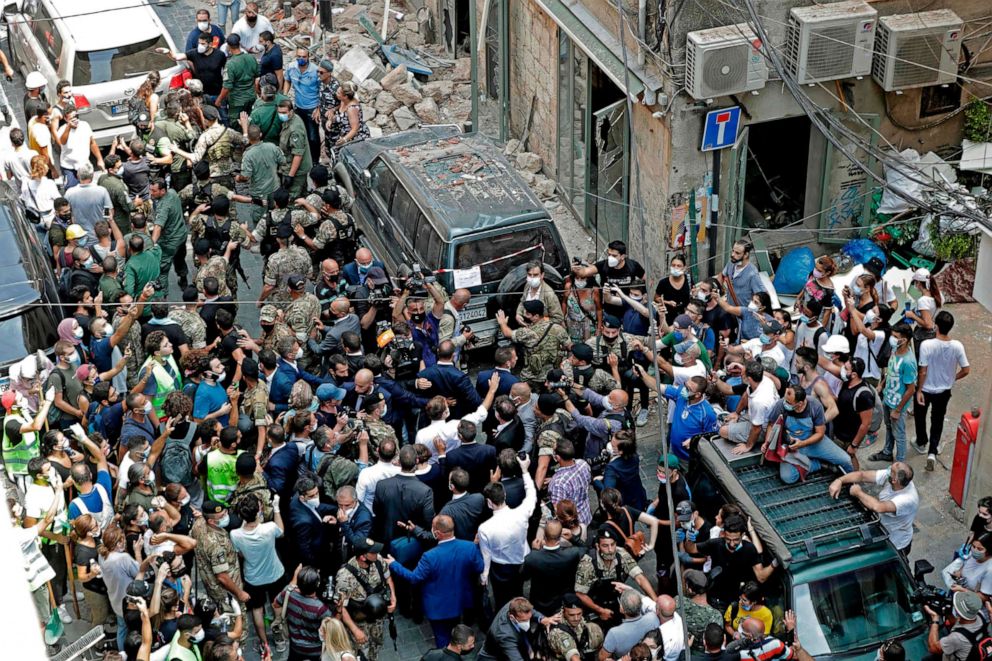
In response, Macron appears to say: "No, I want it to go to you, to the NGOs, under the supervision of the United Nations. ... But we also need to change the political system."
Corruption has long been seen as a principal reason for Lebanon's recent woes, which saw the country become the first in the Middle East to enter hyperinflation. Mismanagement by the current leadership and Hezbollah, an Iranian-backed group that forms part of the Lebanese government, has long been a source of frustration, according to Roy Badaro, a Lebanese economist.
"There is always something about money and power in Lebanon," he told ABC News. "It's never about the future of the country, it's totally the opposite. This kind of neglect, ignoring the basic safety of 1 million person living in Beirut, [shows] these people don't reserve to run the country."
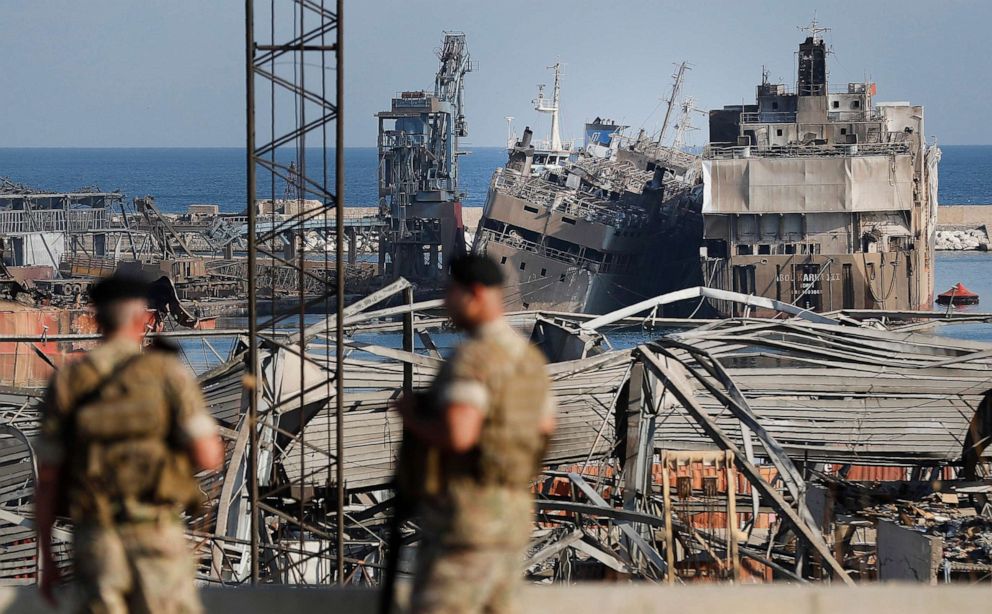
Lebanese President Michel Aouon has declared a two-week state of emergency, three days of mourning and has vowed that those responsible for the blast, which sent shockwaves through the entire city and beyond, would face justice.
Up to 300,000 people have been rendered homeless, Beirut's governor said Wednesday.
A plane donated by the U.A.E. carrying 20 tons of World Health Organization supplies arrived from Dubai Wednesday night, which will help cover thousands of trauma and surgical interventions, the WHO said.
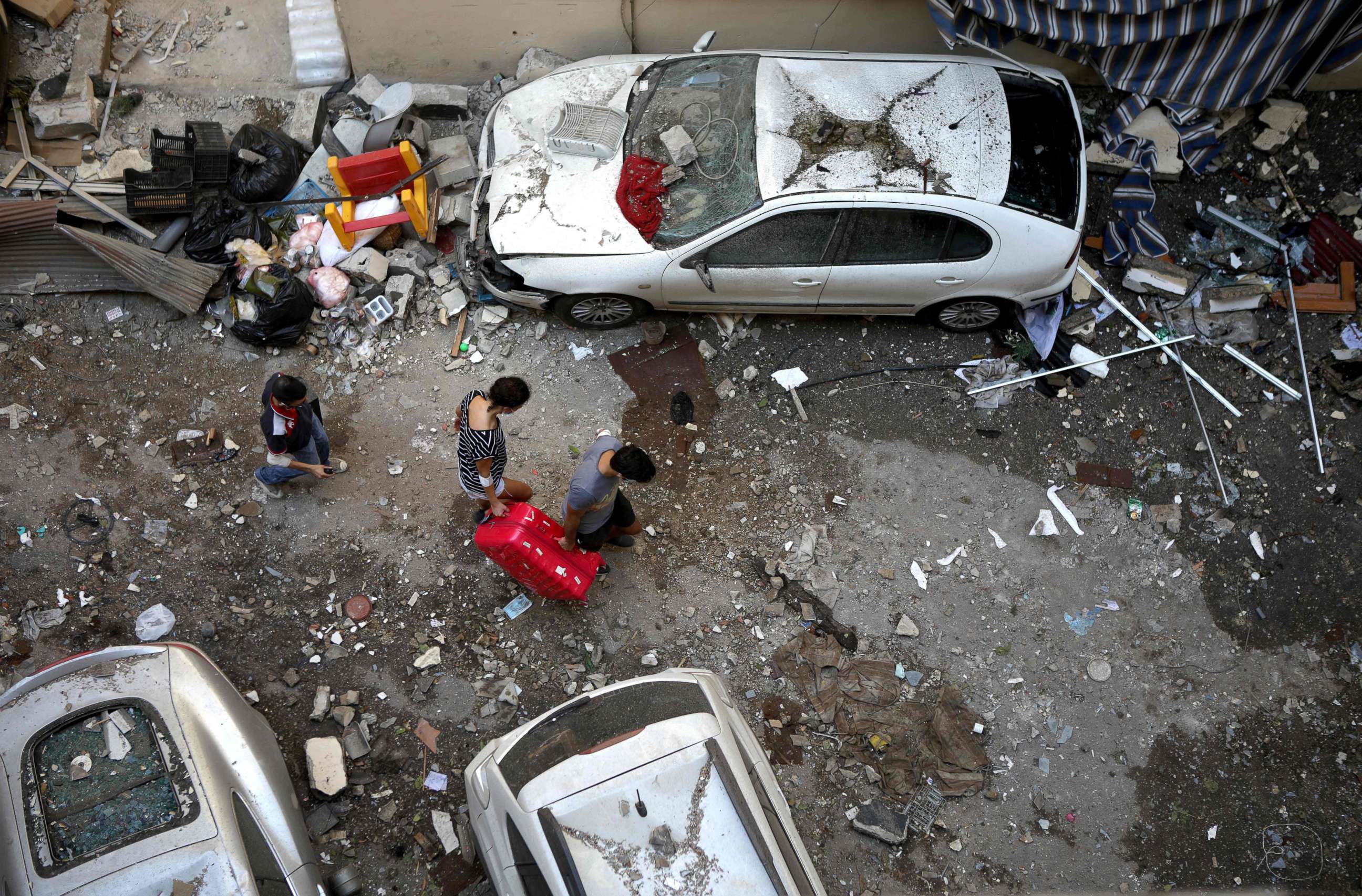
"The blast left three hospitals in Beirut non-functional & two hospitals partially damaged, leaving many facilities overwhelmed with a critical gap in hospital bed capacity," the WHO posted on Twitter. "Patients are being transferred to hospitals across the country, as far as south Saida & north Tripoli."
The U.S. is now also providing "immediate humanitarian assistance" to the Lebanese government, a spokesperson for the U.S. Agency for International Development said. Other countries have begun setting up field hospitals in the city.
The exact cause of the blast remains unknown, although authorities said that more than 2,700 tons of ammonium nitrate, an industrial compound, was being stored in the warehouse that was the scene of the blast. Footage from the scene appears to show a cloud of smoke forming before the blast, then a fire, before the massive explosion that carried a mushroom cloud well over the city.
Young people took to the streets to help sweep up debris on Wednesday, as search and rescue teams continue to sift through the rubble for the missing.
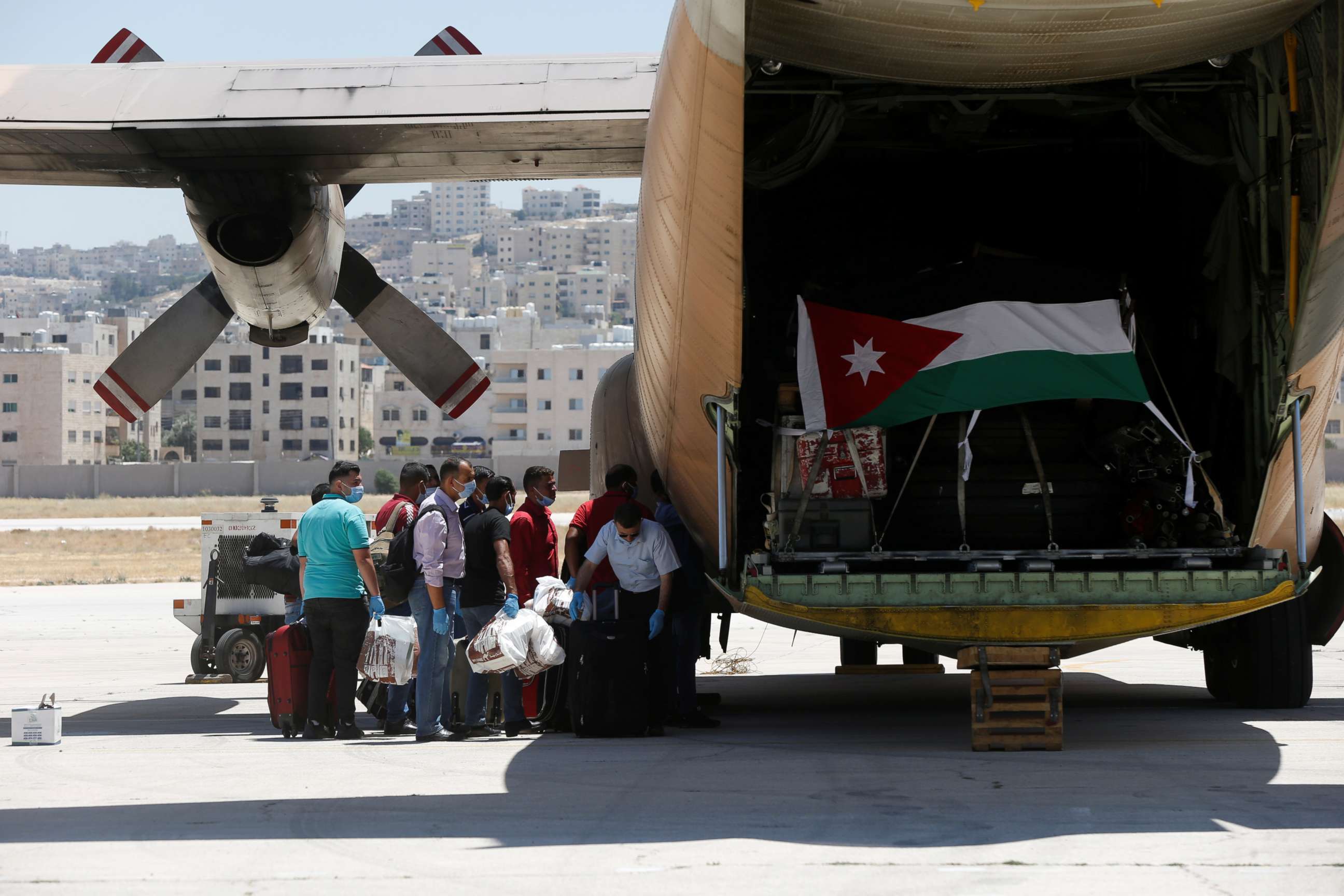
Lebanon is currently in a place of extreme financial difficulty, and with the health service already stretched by the coronavirus pandemic. The country has a population of 6 million, including 1.5 million Syrian refugees, according to UNICEF.
Samah Hadid, a resident of Beirut who lives just a mile away from the blast site, told ABC News that "it was a very terrifying few minutes."
"Whilst people in Beirut are used to, unfortunately, these sorts of incidents of terrorism [and] war, what happened yesterday was still very much devastating and something on another level," she said.
ABC News' Leena Saidi, Nasser Atta, and Conor Finnegan contributed to this report.
This report was featured in the Thursday, Aug. 6, 2020, episode of "Start Here," ABC News' daily news podcast.
"Start Here" offers a straightforward look at the day's top stories in 20 minutes. Listen for free every weekday on Apple Podcasts, Google Podcasts, Spotify, the ABC News app or wherever you get your podcasts.




